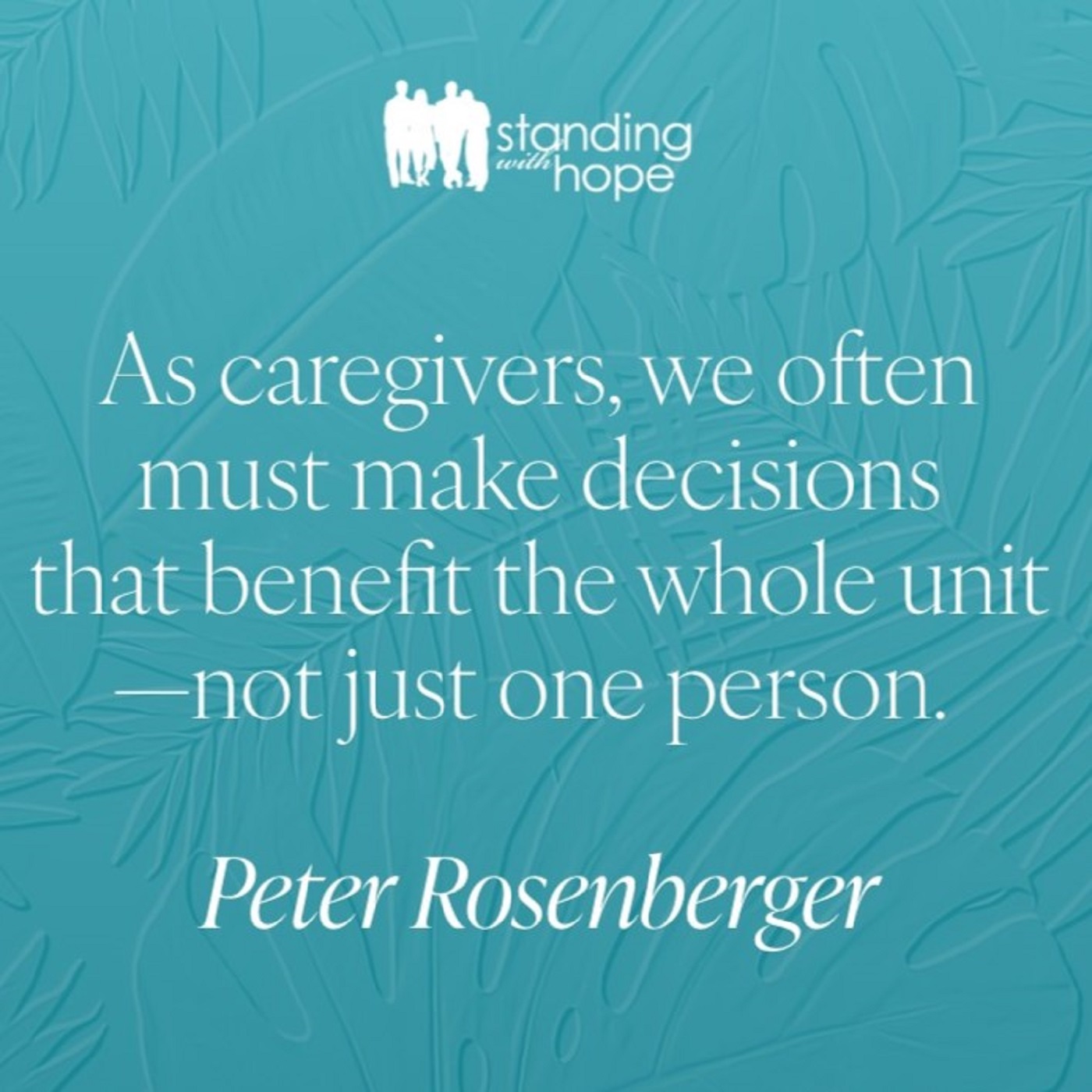We get into the trap as caregivers where we're thinking of someone almost to the exclusion of everyone else,. I understand why - because that person has extreme needs.
But as a caregiver, YOU are meeting many of those extreme needs. What happens if you don't consider the person meeting the extreme needs?
You must think of the whole unit.



